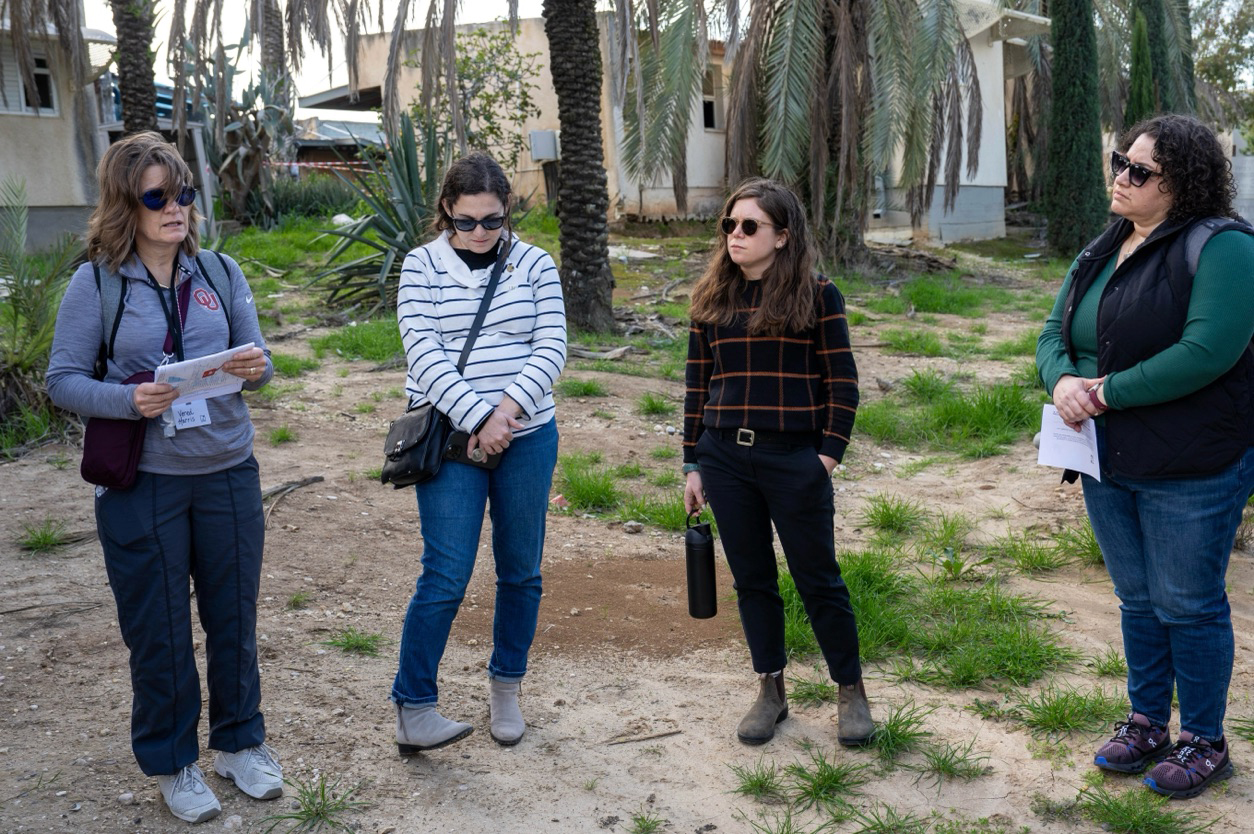(RNS) — When asked how he was doing, the late Israeli poet Haim Gouri was known to respond, “I am as my people are.”
145 days into this war, I feel his words deeply. As an American Jew, rabbi and leader of the women’s affiliate of the largest Jewish movement outside Israel, I am inextricably connected to how Jewish people around the world are doing. Judaism defies classification as an ethnicity, religion or race, even as we share qualities of each category. Complex arguments have been and continue to be made about the relationship between Jews in Israel and Jews worldwide. For me, the reality is both simple and profound: We are a people. While I am not a citizen of Israel, I would answer with Gouri — I am as our people are.
With over 100 hostages still in Hamas captivity, the denial of the rape and violence against women and others on Oct. 7, and the suffering of both Israeli and Palestinian civilians — I am as my people are, and my people are in pain.
This week, with negotiations for a hostage deal and cease-fire set to resume in Paris, I am both hopeful and concerned for my people.
Earlier this month, I led a delegation to Israel, bringing North American Jewish leaders to see for ourselves how our people are doing.
For one week, we sat with survivors of the Hamas attack on Israeli communities on the Gaza border. We walked through the rubble of Kfar Azza, where 60 people were murdered and 18 kidnapped. We met Liora, who hid with her family for 35 hours in the safe room of her home until the Israeli army rescued them, with little access to water, food or electricity. Her son, Tal, was murdered by invading terrorists while defending his community. We stood near the back gate of the kibbutz, 3 miles east of Gaza, and recited the kaddish, a prayer for the dead.

Rabbi Liz P.G. Hirsch, middle right, joins other delegation participants to recite the mourner’s kaddish at the edge of Kfar Azza, during a recent trip to Israel. (Photo by Elana Goodridge)
We met Lee, brother of American Israeli Keith Siegel, captured from Kfar Azza with his wife, Aviva. Aviva was released in the hostage deal last autumn, yet Keith is still held in Gaza with no clear release in sight. Aviva has described the conditions that she, Keith and others faced, from hunger and oxygen deprivation in underground tunnels, to humiliation and sexual violence.
We met members of Knesset, the Israeli parliament, including lawmakers Debbie Biton and Shelly Tal Meron. Biton is from Sderot, a city less than a mile from Gaza. She described agonizing hours on Oct. 7 as she tried contacting her daughter in a neighboring community, unable to confirm if her grandchildren were alive.
Meron is working with released hostages to amplify the stories of violence against women on Oct. 7 and the threats faced by those still captive, including the concern that some hostages may be currently pregnant by their rapists.
Each emphasized this message, which must be heard by negotiators and world leaders this week: Time is running out to bring the hostages home. Jewish tradition affirms that “there is no greater commandment than redeeming the captive.”
As Jews who live in relative safety in the United States and Canada, we bore witness to tragedy. We saw the house where the mother and father of infant twins were murdered, with their children left orphaned and helpless inside. These are just two of the 1,200 people killed on Oct. 7, targeted simply because they were Jewish. According to documentation collected by the Anti-Defamation League, the Hamas charter is committed to killing the Jewish people. The months since Oct. 7 have seen a global rise in antisemitism, from the defacing of synagogues to hate speech on college campuses. I am as my people are, and I am afraid.
Still, we met many who were hopeful and healing. Later that week, we visited Kibbutz Shefayim, where residents have welcomed nearly 400 refugees from Kfar Azza. Their needs are both basic and unimaginable, as they face trauma that will last forever. For now, volunteers are providing clothing and shelter for people who can never return home.
In Haifa, we met Jews and Arabs who build bonds through a community garden and shared holiday celebrations. At Tel HaShomer Hospital, the largest hospital in Israel, we walked the rehabilitation unit with Dikla, one of the volunteers. We asked her how she was doing. “Am I angry? Yes. … Am I struggling? Absolutely. But through it all, I’m also filled with hope and determination.”
I am as my people are. Angry, struggling, hopeful, determined.
As our week in Israel ended, we sat with Haim Gouri’s daughter, Hamutal, a peace activist with Mothers Against Violence. Hamutal spoke with conviction:
“You can go days without food, hours without water, a minute without breathing — but you cannot go a second without hope for peace.”
As broken as my people are, we are also resilient. Even in this challenging moment, we must remain committed to hope and peace. This is the promise I made to each and every person we met that week. With the negotiators resuming talks, I pray with my people: Bring the hostages home and begin to heal this bitter conflict.
I am as my people are. We are yearning for wholeness and peace.
(Rabbi Liz P.G. Hirsch is the executive director of Women of Reform Judaism, the women’s affiliate to the largest Jewish denomination in North America. The views expressed in this commentary do not necessarily reflect those of Religion News Service.)
>>> Read full article>>>
Copyright for syndicated content belongs to the linked Source : ReligionNews – https://religionnews.com/2024/02/28/145-days-into-war-i-am-as-my-people-are/










